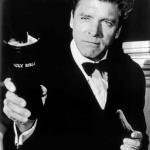We talked about Brian Williams in Sunday school yesterday. I can’t remember exactly what the original question prompt was: something along the lines of what could have saved Brian Williams from the bad choices that he made. Everyone had a different angle for talking about the story, which is what made it a fascinating conversation.
I read a book about a year ago called Mistakes Were Made But Not By Me that talks about the psychology of self-justification and the way that our memories are always at least partly made up. I don’t have a whole lot of faith in objectivity. I think that anyone who pretends to be objective is full of crap; I only trust people who are open about their biases and agendas. Also I think that we can have very real experiences of reality that do not correspond perfectly to the objective facts of what happened. I believe that the girl Jackie from UVA whose gang-rape story fell apart under scrutiny really did have something terrible happen to her that she wasn’t able to recollect with accuracy. While Brian Williams’ fabrication was a completely different context, I suspect that he probably felt like he was under fire in the helicopter that he was aboard in Iraq because of the excitement and intensity of the experience.
It bothered me that Williams got taken down not because he got caught telling a tall tale, but because he apologized for it, which then created a social media storm and a PR problem for NBC. I don’t like the idea that someone would get slaughtered in response to publicly admitting a mistake. So my comment in Sunday school class had to do with the lack of grace in the media world where Williams operates. I want to live in a world where we can confess our sins and receive forgiveness, where there’s an expectation that people are going to tell lies and say stupid things that they will need to apologize for later. To me, that’s the most important aspect of the world that Christians ought to be creating.
Well, there was a woman in our class who has worked in media throughout her career. And she said that Brian Williams should have been outright fired for what he did and not just suspended, because things like that are why the media has lost its credibility in our national discourse. From her vantage point, the trust that the media has lost is something that desperately needs to be regained. She teaches journalism to college students and is very passionate about journalism ethics. Williams’ suspension sends a signal that truth matters. As I was listening to her, I felt convicted for sympathizing with the famous, charming white guy. What he did was disrespectful and harmful to thousands of people working behind the scenes so that he could be the face of the news. He betrayed the ethics of journalism to join the scummy new world of click-bait blogosphere sensationalism that is putting more principled journalists out of business. As cynical as I am about the possibility of objectivity, there are some people in the world of journalism who really care about telling the truth and their integrity deserves to be honored.
Another woman spoke up about Hurricane Katrina. The media coverage of the incident was very disrespectful to the city of New Orleans, which was portrayed as some kind of subhuman wasteland. Williams had spoken about seeing dead bodies float by from his hotel room in the French Quarter (which is unlikely to be true based on where the flooding actually take place). To what degree was he part of the national media’s dehumanization of the people of New Orleans. This woman made the point that Williams got in trouble because his glib account of the helicopter ride offended the military. She asked whether he would have gotten in trouble just for lying about Katrina and New Orleans without a powerful constituency to create PR problems for NBC.
Then, a man spoke and made a very powerful connection between Brian Williams’ story and his own life. He related that he had been in a disagreement earlier in which he felt like his “helicopter” was the one being shot down when it really wasn’t. In other words, he had felt like the righteous victim in the situation, but he had realized through the course of our conversation that he was pulling a Brian Williams in his personal life. This got me thinking about how many times we act like our “helicopter” is being shot down when it really isn’t. How many times do we make ourselves the protagonist of the story when it really isn’t about us?
I’m sure some of you will grimace for me to say that this seems like the standard white male sin. Maybe other demographics of people do it too; I can’t really speak to that. But I think that white middle-upper class guys in highly educated families have a unique burden placed on us to be the hero of every story that we tell. I don’t think it’s merely that we’re self-centered and arrogant, but that we feel like we’re supposed to be in charge, and if we’re not the hero of the story, we’ve somehow failed in our life duty. In any case, I personally feel the burden of that duty. I grew up thinking that I was supposed to get 99th percentile on every standardized test I took. I was the Most Outstanding Senior at my high school. I wrote the best undergraduate poem at UVA in 2000. It’s always been my job to be important and special. The fact that I’m 37 years old and haven’t published my first book yet feels like a huge failure.
In any case, those of us who are wannabe heroes whether we’re white and male or otherwise have a unique need to have our stories decentered for our own good and the good of those whom we otherwise harm. Jesus tells us to deny ourselves and take up our crosses to follow him. Paul tells us in Philippians 2:3, “Do nothing with selfish ambition or conceit, but in humility, regard others as better than yourselves.” I don’t think everyone’s path to salvation is exactly the same. Some people live their lives in the shadows as co-dependents and need to be saved from not standing up for their dignity. But people like me need to be saved from our craving to be on the helicopter that got shot down, to write the next Blue Like Jazz book, to have a compelling story that everybody wants to read. I can have a beautiful story when I’m no longer desperately trying to make it an important one. My helicopter has never been shot down. I live a very blessed life. One day I will learn to appreciate it.

















